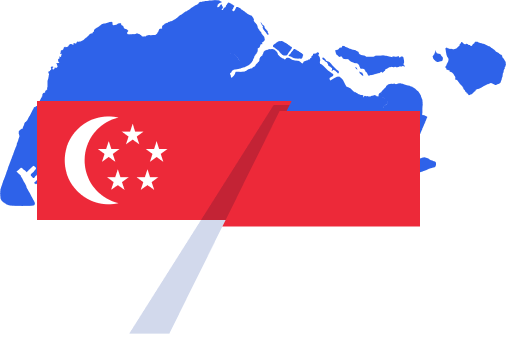Introduction
The Personal Data Protection Act (PDPA) in Singapore establishes a comprehensive framework governing personal data collection, use, disclosure, and care. This legislation recognizes the importance of safeguarding individuals’ personal information and outlines various rules to ensure responsible data handling by organizations.
In Singapore, the PDPA applies to both private and public sector organizations and sets forth obligations and guidelines to protect the rights of individuals concerning their personal data. It is crucial for businesses to understand and comply with the PDPA to foster trust and maintain ethical standards in handling personal information.
Data protection obligations
The Personal Data Protection Act (PDPA) imposes data protection obligations on organizations to ensure the responsible and lawful processing of personal data. These obligations include implementing reasonable security arrangements to prevent unauthorized access to personal data and establishing measures to protect against data breaches.
Organizations must also adhere to retention limitation obligations, ensuring that personal data is not retained for longer than necessary to fulfill the purposes for which it was collected. This limitation promotes data minimization and prevents the unnecessary storage of sensitive information.
Data breach notification obligation
The PDPA introduces a crucial aspect known as the Data Breach Notification Obligation, compelling organizations to notify the Personal Data Protection Commission (PDPC) and affected individuals during a data breach. This proactive approach enhances transparency and allows individuals to take necessary steps to protect their personal information following a breach.
Prompt notification of data breaches is essential for minimizing potential harm to individuals and allows for timely investigation and mitigation of the incident. Failure to comply with this obligation may result in financial penalties, underscoring the seriousness of data breach prevention and response.
Data portability obligation
The Personal Data Protection Act (PDPA) introduces the Data Portability Obligation, enabling individuals to request the transfer of their personal data between organizations. This empowers individuals with greater control over their information and promotes competition among service providers by fostering an environment where users can easily switch between services while retaining their personal data.
The Data Portability Obligation encourages organizations to adopt interoperable systems and standardized formats, facilitating seamless data transfer and enhancing the overall user experience.
Personal Data Protection Commission (PDPC)
The PDPC plays a pivotal role in overseeing and enforcing the PDPA in Singapore. As an independent body, the PDPC ensures that organizations comply with the PDPA’s provisions and takes appropriate action in cases of non-compliance.
The PDPC provides guidance and resources to help organizations understand their obligations under the PDPA, fostering a collaborative approach to data protection within the Singaporean business landscape. The commission’s role is crucial in building a culture of accountability and transparency regarding personal data handling.

Protecting personal data through accountable data protection practices
The Personal Data Protection Act (PDPA) emphasizes the need for accountable data protection practices, requiring organizations to implement measures that align with fairness, transparency, and accountability principles. This ensures that personal data is processed in a manner that respects the rights of individuals and promotes trust between organizations and their clients.
Accountable data protection practices involve establishing clear policies, procedures, and safeguards to govern personal data collection, use, and disclosure. Organizations must communicate these practices to individuals, fostering an environment of transparency and allowing individuals to make informed decisions regarding using their personal information.
Data Protection Officer (DPO) responsibilities
Appointing a Data Protection Officer (DPO) is a key requirement under the PDPA, especially for organizations engaged in extensive data processing activities. The DPO is crucial in ensuring compliance with the PDPA and serves as a point of contact for individuals and the PDPC.
DPOs are responsible for advising the organization on its data protection obligations, monitoring compliance, and liaising with the PDPC. This role enhances accountability and ensures that organizations have dedicated personnel to uphold data protection standards.
Handling sensitive data with care
The Personal Data Protection Act (PDPA) specializes in protecting sensitive data, recognizing its heightened privacy implications. Organizations must exercise extra caution when processing sensitive personal data, which includes information such as medical records, financial details, and other data that may cause significant harm if mishandled.
Handling sensitive data with care involves implementing additional security measures, restricting access to authorized personnel, and ensuring that such data is processed only for legitimate and reasonable purposes. This approach mitigates the risks associated with the processing of sensitive information.
Transfer limitation obligation
The Personal Data Protection Act (PDPA) introduces the Transfer Limitation Obligation, imposing restrictions on the cross-border transfer of personal data. Organizations must ensure that when transferring personal data outside Singapore, it is done under the PDPA’s requirements, including obtaining the necessary consent from individuals.
This obligation aims to protect the privacy of individuals by preventing the unauthorized transfer of personal data to jurisdictions that may not have equivalent data protection standards. It reinforces the PDPA’s commitment to safeguarding personal data regardless of location.
Safeguarding business contact information
While the Personal Data Protection Act (PDPA) primarily focuses on protecting individuals’ personal data, it also recognizes the importance of safeguarding business contact information. Organizations must implement measures to ensure the security and confidentiality of business contact information, preventing unauthorized access and disclosure.
Safeguarding business contact information involves implementing access controls, encryption, and other security measures to protect against data breaches and unauthorized use. This proactive approach ensures the integrity of business relationships and maintains trust within the professional community.

Reasonable security arrangements
The Personal Data Protection Act (PDPA) mandates organizations to establish reasonable security arrangements to protect the personal data in their possession and prevent unauthorized access. This obligation requires organizations to assess and implement appropriate measures based on the sensitivity of the data they handle.
Reasonable security arrangements may include encryption, access controls, regular security audits, and employee training to enhance awareness of data protection best practices. Adhering to this obligation not only protects individuals’ personal data but also strengthens the overall cybersecurity posture of organizations.
Consent obligation
The Consent Obligation under the PDPA requires organizations to obtain individuals’ consent before collecting, using, or disclosing their personal data. Consent must be voluntary, informed, and specific to the purposes for which the data is being processed.
Obtaining valid consent is crucial for ensuring that individuals have control over their personal information and can make informed decisions about its use. Organizations must communicate clearly and transparently about data processing purposes and allow individuals to withdraw their consent at any time.
Correction obligation
The Correction Obligation mandates organizations to correct errors or inaccuracies in individuals’ personal data upon request. This ensures that individuals have accurate and up-to-date information about themselves, contributing to the overall integrity of personal data records.
Organizations must establish processes and mechanisms to promptly address correction requests and communicate the corrected information to relevant third parties, if applicable. Adhering to the Correction Obligation reinforces trust between individuals and organizations, demonstrating a commitment to data accuracy.
Protection obligation
The Protection Obligation requires organizations to protect personal data in their possession from unauthorized access or disclosure. This obligation encompasses external threats and internal risks, emphasizing the importance of establishing comprehensive security measures.
Data protection measures such as encryption, access controls, and regular security assessments are essential to meet the Protection Obligation. Organizations must continuously evaluate and update their security protocols to address evolving threats and ensure the ongoing safeguarding of personal data.
Data intermediaries: A shared responsibility
The Personal Data Protection Act (PDPA) recognizes the role of data intermediaries, entities that process personal data on behalf of organizations. While organizations are accountable for ensuring compliance with the PDPA, data intermediaries share the responsibility of upholding data protection standards.
Data intermediaries must implement measures to protect personal data in their possession, and organizations must conduct due diligence when engaging the services of data intermediaries. This collaborative approach protects personal data throughout the entire data-processing ecosystem.

Legally enforceable obligations and financial penalties
The PDPA establishes legally enforceable obligations for organizations to comply with its provisions, emphasizing the importance of accountability in personal data protection. Failure to meet these obligations can result in financial penalties, highlighting the serious consequences of non-compliance.
Financial penalties serve as a deterrent, encouraging organizations to prioritize data protection and invest in robust security measures. The severity of penalties underscores the significance of safeguarding personal data and organizations’ responsibility.
Organizations failing to comply with the Data Breach Notification Obligation under Singapore’s PDPA (Personal Data Protection Act) may face significant financial penalties. The financial penalties for breaches of the PDPA have been increased, and the amendments took effect on October 1, 2022.
Increased maximum penalties: The financial penalty cap that may be imposed on organizations for breaches under the PDPA has been raised. In the case of an organization, the maximum financial penalty is now SGD 1 million, reflecting a substantial increase from the previous limit.
Individual penalties: Besides organizational penalties, individuals can face financial consequences. The financial penalty cap for individuals, such as employees or officers of an organization, is now SGD 200,000.
These enhanced financial penalties underscore the importance of organizations taking the Data Breach Notification Obligation seriously, ensuring timely and transparent reporting of data breaches to regulatory authorities and affected individuals.
Notifiable data breaches
The PDPA introduces the concept of notifiable data breaches, requiring organizations to report significant breaches to the PDPC and affected individuals. This proactive approach enhances transparency and allows swift action to mitigate the impact of data breaches.
Notifiable data breaches include incidents that risk significant harm to affected individuals, emphasizing the importance of prompt reporting to minimize potential harm. This obligation ensures that individuals are informed about potential risks to their personal data and can take necessary measures to protect themselves.
Collection, use, or disclosure: Legitimate interests
The PDPA acknowledges the concept of legitimate interests as a basis for organizations’ collection, use, or disclosure of personal data. Legitimate interests provide organizations with flexibility in processing personal data for reasonable and lawful purposes without the individual’s explicit consent.
To rely on legitimate interests, organizations must conduct a thorough assessment, ensuring that their interests align with the reasonable expectations of the individuals involved. This approach balances the need for data processing with the privacy rights of individuals, fostering a responsible and ethical use of personal data.
Conclusion
Private sector organizations play a crucial role in upholding the Personal Data Protection Act (PDPA) principles and safeguarding personal data in Singapore. These organizations must comply with the PDPA and are instrumental in fostering a culture of data protection and privacy awareness.
Ensuring data protection goes beyond legal compliance; it requires a commitment to ethical standards and a proactive approach to addressing emerging challenges. Private sector organizations must prioritize ongoing employee education and training, promoting a collective responsibility for protecting personal data.




